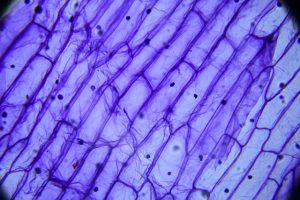Navigating New Jersey’s Top Sober Living Environments for Sustained Recovery
In New Jersey, sober living homes offer tailored environments for individuals transitioning from drug rehab programs. These homes provide structured support with access to ongoing treatment services and safe, substance-free living spaces, often located n…….

In New Jersey, sober living homes offer tailored environments for individuals transitioning from drug rehab programs. These homes provide structured support with access to ongoing treatment services and safe, substance-free living spaces, often located near top-tier drug rehab facilities to ensure proximity to essential care resources. The state's sober living options are diverse, including peaceful oceanfront homes for reflection and healing, as well as urban dwellings offering convenient access to employment, education, and community support. These communities offer individualized care with a range of amenities like fitness centers and recovery workshops, emphasizing accountability and personal responsibility within peer-led support networks. They serve as an intermediary step between rehab and full societal reintegration, fostering a sober lifestyle through structured living, skill development, and preparation for independent life. The combination of professional care, community support, and transitional housing makes New Jersey's sober living environments highly effective recovery resources post-drug rehab. They bridge the gap between rehab centers and independent living, offering a supportive community, amenities, and strategic locations to facilitate sustained sobriety and recovery in New Jersey.
1. New Jersey offers diverse recovery settings for individuals seeking drug rehabilitation, with sober living environments emerging as viable options alongside traditional centers.
2. These environments provide structured living arrangements designed to support long-term sobriety and facilitate a smooth transition from intensive treatment programs.
3. This article explores the top sober living environments in New Jersey, delineating their unique features and comparing them to conventional rehab facilities.
4. It also examines the range of amenities and support systems available within these communities, assessing their potential for aiding sustained recovery from substance abuse.
- What Are the Best Sober Living Environments in New Jersey for Drug Rehab?
- How Do Sober Living Homes in New Jersey Differ from Drug Rehab Centers?
- What Amenities and Support Systems Can You Expect in a Sober Living Environment in NJ?
- Can Sober Living Environments in New Jersey Help with Long-Term Recovery from Substance Abuse?
What Are the Best Sober Living Environments in New Jersey for Drug Rehab?

In New Jersey, individuals seeking recovery from substance use disorders have a variety of robust sober living environments at their disposal. These environments are designed to provide structured support and a safe space for those transitioning from drug rehab programs into a more independent lifestyle. The best sober living environments in the state not only offer a clean, supportive, and drug-free place to live but also provide resources that facilitate ongoing recovery efforts. They often include close proximity to comprehensive drug rehab New Jersey facilities, ensuring residents have easy access to continued treatment services, including counseling, therapy, and relapse prevention programs. These communities are instrumental in helping individuals maintain their sobriety while reintegrating into society. The state’s commitment to recovery is evident in the wide range of options available, from oceanfront properties offering serene environments for reflection and healing to urban settings that provide access to employment, education, and community support networks.
Furthermore, New Jersey’s sober living homes are known for their individualized approach to care, recognizing that each resident has unique needs and challenges. They often feature a range of amenities and activities designed to promote physical, mental, and emotional well-being. These can include fitness centers, recovery-focused workshops, and group outings that encourage healthy social interactions. The top sober living environments in New Jersey also emphasize the importance of accountability and personal responsibility, fostering an environment where individuals can hold each other to a standard of sobriety while building a supportive network of peers who are all committed to a drug-free life. This combination of structured support, access to professional care, and a community of recovery advocates makes New Jersey’s sober living environments some of the most effective in the nation for those completing drug rehab programs.
How Do Sober Living Homes in New Jersey Differ from Drug Rehab Centers?

In New Jersey, sober living homes offer a distinctive continuum of care for individuals transitioning from structured drug rehab programs to more independent lifestyles. Unlike traditional drug rehab centers in New Jersey, which typically follow a regimented schedule and provide intensive therapy, medical supervision, and a highly controlled environment, sober living homes emphasize peer support, personal responsibility, and fostering a structured yet flexible daily routine that mimics the responsibilities of conventional living. These homes are designed to bridge the gap between rehab and full reintegration into society, offering residents a community of like-minded individuals who are all committed to maintaining sobriety. Residents in sober living environments are expected to adhere to house rules, contribute to their living space through chores, and often engage in employment or education, promoting a sense of purpose and direction that complements the ongoing recovery process. The focus is on self-governance and the development of life skills that are essential for long-term sobriety and success outside the confines of a drug rehab center in New Jersey. This approach ensures a smoother transition for individuals as they work towards building a sober lifestyle, free from the grips of substance abuse.
What Amenities and Support Systems Can You Expect in a Sober Living Environment in NJ?

In New Jersey, sober living environments are designed to provide individuals in recovery with structured, supportive accommodations that facilitate a sustainable transition from drug rehab centers to independent living. These environments often offer a range of amenities tailored to support the well-being and sobriety of their residents. Amenities can include comfortable housing with private or shared rooms, fully equipped kitchens, laundry facilities, and common areas for social interaction and group activities. Many sober living homes also prioritize proximity to drug rehab New Jersey centers to ensure easy access to continued care and support. Support systems within these environments are robust, offering peer support networks, regular drug testing to maintain accountability, and a clear set of community guidelines that all residents must adhere to. Additionally, residents have access to transportation for medical appointments, employment, and participation in recovery programs. The emphasis on a structured routine helps individuals establish healthy habits and encourages them to engage with recovery resources such as counseling, 12-step programs, and therapeutic activities that complement the care received during drug rehab New Jersey. This holistic approach ensures that residents receive comprehensive support that addresses both their immediate needs and long-term recovery goals. The combination of community living, accountability measures, and access to ongoing care makes sober living environments in New Jersey a valuable asset for those committed to maintaining sobriety.
Can Sober Living Environments in New Jersey Help with Long-Term Recovery from Substance Abuse?

New Jersey offers a comprehensive network of sober living environments that serve as pivotal stepping stones for individuals transitioning from drug rehab centers to independent living. These communities provide structured, supportive, and substance-free settings where residents can reinforce the skills and coping mechanisms learned during their initial treatment. The environment within these homes is designed to mimic real-life situations, fostering accountability and responsibility through shared responsibilities and mutual support. This practical experience in a sober living setting can be instrumental in promoting long-term recovery from substance abuse by offering ongoing support and a community that understands the challenges of recovery firsthand.
Moreover, New Jersey’s sober living environments are often interlaced with resources for continued drug rehab services. Residents have access to various recovery-oriented activities, including group therapy, educational workshops, and regular drug testing. These facilities emphasize the importance of a holistic approach to recovery, addressing not only the physical aspects of addiction but also the emotional, psychological, and social needs of individuals. The integration of professional treatment modalities within these environments ensures that residents receive comprehensive care, which can significantly enhance their chances of maintaining long-term sobriety.
recovery from substance abuse often necessitates a supportive and structured environment post-rehabilitation. In New Jersey, sober living environments play a pivotal role in this journey, offering individuals a transitional phase between intensive drug rehab programs and independent living. These environments not only provide a network of peer support but also offer access to various amenities and resources tailored to facilitate long-term recovery. With their unique approach that combines independence with accountability, these New Jersey sober living homes complement drug rehab centers by offering continuous care, which is crucial for sustaining sobriety. For those seeking a robust aftercare plan in the Garden State, these environments stand as a testament to the possibility of a fulfilling life in recovery.









